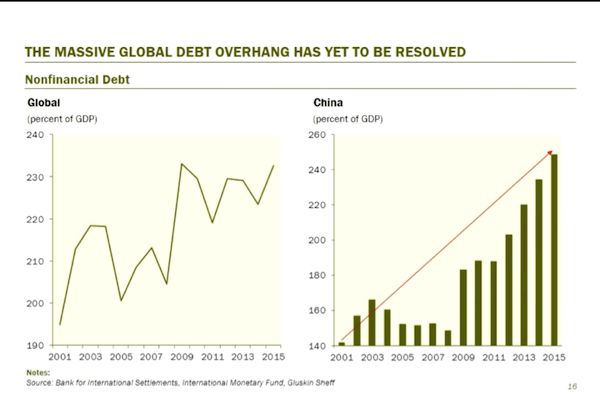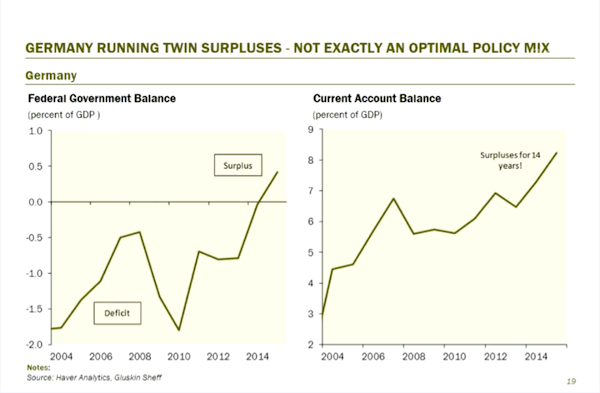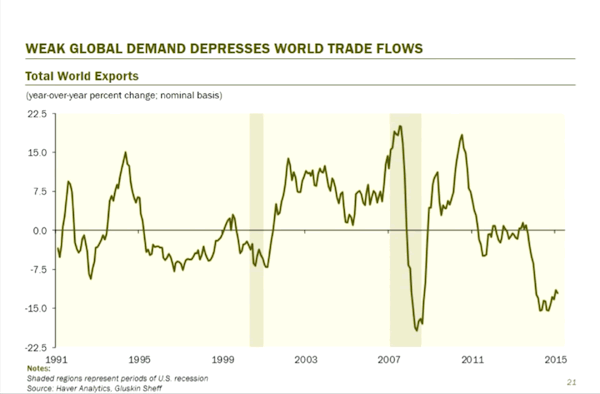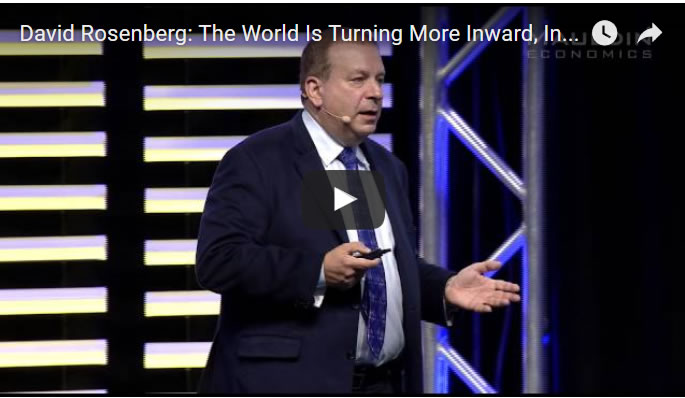The World Is Turning Dangerously Insular
Economics / Global Economy Oct 11, 2016 - 03:04 PM GMTBy: John_Mauldin
 A toxic mix of short-sighted policy and isolationist politics is endangering the global economy.
A toxic mix of short-sighted policy and isolationist politics is endangering the global economy.
In his recent talk at the Strategic Investment Conference 2016, David Rosenberg of Gluskin Sheff argues that there are growing threats looming over the global economy.
He believes that current macroeconomic and political trends could lead to serious problems in China, and especially Europe, in the not too distant future.
The massive global debt overhang
Rosenberg points out that there has been no real “deleveraging” of debt to income ratios across the globe.
There was a lot of talk of deleveraging and the positive impact of shrinking debt right after the Financial Crisis. But then, governments and consumers turned a deaf ear and went on a borrowing spree shortly afterward.

China’s hard landing?
Rosenberg points out that China’s debt to GDP ratio is growing fast. He notes that Chinese government and corporate purchases of everything from US bonds to foreign oil reserves was a big factor in the global recovery from the Financial Crisis.
Rosenberg asks: Will China’s be able to deal with its growing debt problem with $3 trillion reserves? This may sound like a lot of money, but the reserves are shrinking fast. Also keep in mind that nonperforming loans have doubled in China over the last two years. Most analysts believe the Chinese banking system will need a bailout.
The Chinese economy is slowing down as it moves to a consumer-driven model. And there’s really not much the Fed can do to stop this type of cyclical event.
Japan remains in the doldrums
Japan, the world’s third-largest economy, remains stuck in a decades-long series of recessionary cycles. This is in spite of years of fiscal and monetary stimulus.
He thinks Japan faces two major problems. First, the female participation rate in the labor market remains low even though the government has spent millions to change this cultural norm.
The other problem is cash. Huge amounts of cash (20% of Japan’s GDP) remain on corporate balance sheets. This cash is stuck in bank accounts or invested in short-term bonds instead of being invested in growing businesses. This is a major drag on economic growth in Japan.
The US vs. Germany
Rosenberg speaks to a troubling dichotomy between the US and Germany. He notes that the US tends to maintain large budget deficits (current account deficits) and so “shares growth with the rest of the world by running a trade and payment deficit.”

Germany, though, has been running federal budget surpluses for two years in a row. For 14 years in a row, it has had current account surpluses. That means Germany is not playing by the same rules as everyone else.
He also notes that despite years of low infrastructure spending, Germany is still refusing to spend some of its surpluses on major public projects that would “spread the wealth.” Although the US already far outspends Germany on military and infrastructure, both US candidates for president are talking about keeping up current military spending and starting new public projects.
Rosenberg ends by noting that all of these imbalances have led to a huge decline in global trade.

This makes it even more difficult for the Fed and other central banks to stimulate the global economy.
Watch a recording of David Rosenberg’s speech at the Strategic Investment Conference 2016 below:
Get a free transcript of David Rosenberg's speech from SIC 2016
Download a transcript of David Rosenberg's speech from the Strategic Investment Conference 2016 here.
John Mauldin Archive |
© 2005-2022 http://www.MarketOracle.co.uk - The Market Oracle is a FREE Daily Financial Markets Analysis & Forecasting online publication.




